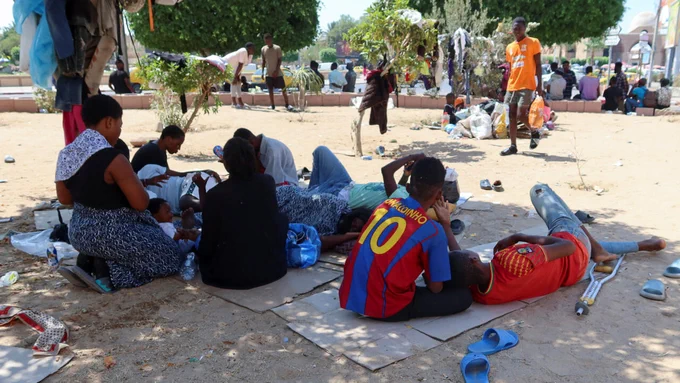
Migrants continue to die at the southern border of Tunisia. The latest report points to the death of more than 20 people in 15 days, a figure that could increase in the short term, considering the constant flow of expelled migrants arriving in Libya.
Related:
Tunisia: Crisis Unit To Control Wildfires in NW Province
On the border strip between Tunisia and Libya, temperatures have reached 50 degrees in recent weeks. The effect of several heat waves this July has made subsistence problems more precarious. Unlike many other deportation zones or migration corridors, Tunisia’s southern border does not yet have any assistance and aid infrastructure. The half moons of both countries are the ones that have so far assumed, with limited resources, the rescue of the most fortunate.
The Tunisian government considers the entry of sub-Saharan migrants into the country as a matter of national security and has managed it from that perspective. Since the beginning of July, thousands of migrants have been expelled to the border with Libya. About 1200 have crossed the border and dozens have been rescued by the Tunisian crescent, but there are many who are stranded on the sands of the desert or lost in a chaotic pilgrimage and unaware of the place. The crescents of Libya and Tunisia are overwhelmed and are demanding the assistance of international aid.
The stay in such an inhospitable place is due to the absurd situation in which both countries, Tunisia and Libya, deny access to sub-Saharan, being trapped in the desert with no possibility of escape.
The Tunisian administration reacted to the accusations that it did not fulfill its humanitarian duties against African irregular migrants in difficult conditions at the #Libya border. pic.twitter.com/I0iH70vD9p
— Daily Middle East (@middleast_daily)
July 28, 2023
Libyan border authorities have reported several groups of migrants wandering through the desert, and several hundred people may have arrived. On the 26th of this month, several humanitarian organizations and social solidarity organizations were heard from, which negotiated an authorization with the Tunisian government to intervene on the southern border, but still on the 28th no concrete result is known.
Although Tunisia has always had a tough hand with sub-Saharan migration, it was at the beginning of July that deportations intensified on an unknown scale.
The strong pressure experienced by sub-Saharan migrants and the impoverished sectors of Tunisia themselves, competing for scarce local resources, unleashed a series of violent events that brought to ruin the emergence of a state of collective xenophobia in the Tunisian host communities.
After President Kais Said accused the migrants of the violent events that had occurred, the harassment and social rejection did not wait:
“From one day to the next… I didn’t have a moment to think, suddenly some Tunisians came into my room, threw me away, and told me to leave,” an Ivorian told the Spanish press on condition of anonymity.
In this context, deportations have increased dramatically, to which the voluntary departures of migrants who fear for their lives have been added. Said even stated in his speech that there was a plan to change the demographic composition of the country.
Today, the Tunisian government’s migration management is balanced between internal security priorities and the commitment to detain migrants required by the European Union, which brings with it financial contributions to the government.



